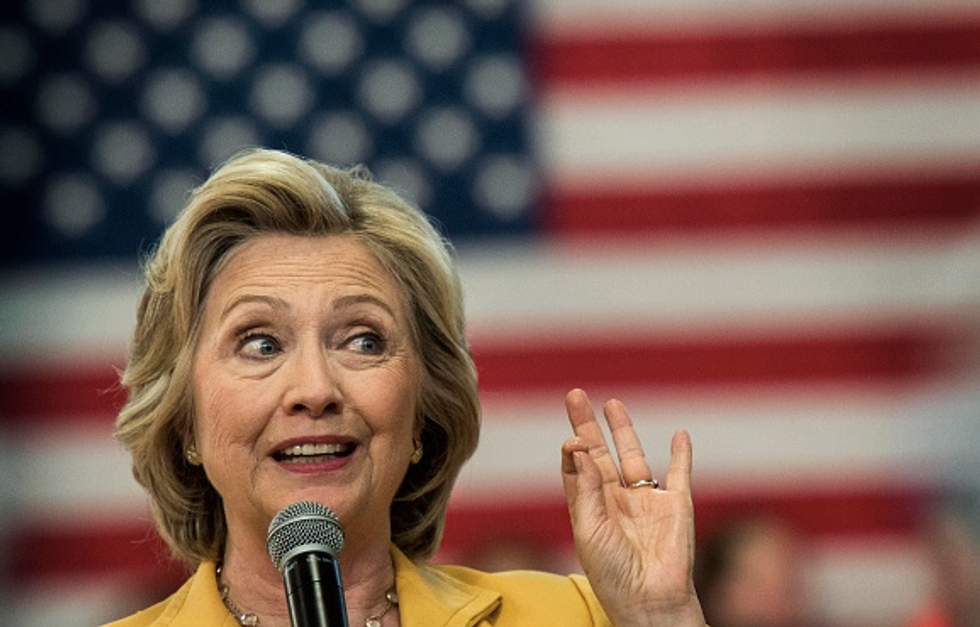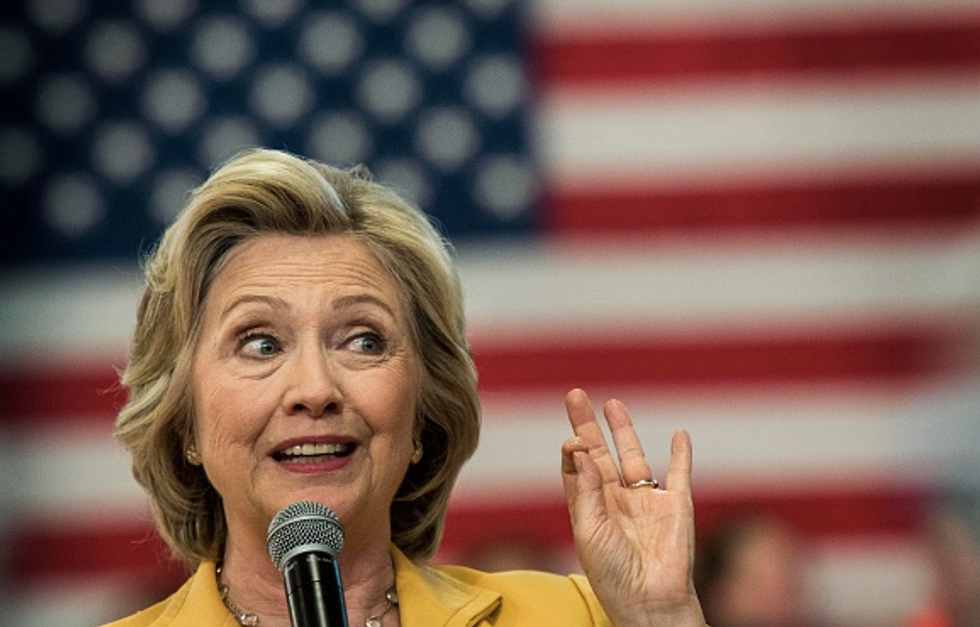
Former Secretary Hillary Clinton speaks to voters at a town hall meeting in Nashua, New Hampshire, on Tuesday, July 28, 2015. (Melina Mara/The Washington Post via Getty Images)

In a speech on July 24, Democratic presidential front-runner Hillary Clinton struck out at "short-termism" and "quarterly capitalism" in proposing to hike capital gains taxes on a sliding scale for investors who hold investments for six years or less.
In doing so, she not only betrayed the nearly genetic predisposition of any Democratic politician to raise taxes on anything that isn't nailed down, but also demonstrated a terrible ignorance of tax policy, economic incentives, and the forces that drive economic inequality.
Mrs. Clinton's bright idea was to suggest that the capital gains tax rate should increase on top earners who hold assets over short-term periods from the current rate of 23.8 percent to 28 percent.

In high-tax states like New York and California, where these taxpayers already pay a combined federal and state capital gains tax rate of nearly 40 percent, this would increase the government's take to nearly 45 percent.
Forget about "short-termism" – this would be out-and-out government confiscation!
But this is just the beginning of the colossal mistake Hillary just proposed…
You see, the primary purpose of taxing income is to raise money to pay for the government. A secondary purpose is to encourage certain types of economic activity and to discourage other types of activity. In theory, the tax code should be encouraging productive activities and discouraging speculative and unproductive activities.
Long-term investments that contribute to the long-term growth of the economy, such as building new plants and research and development, are the types of activities we want to encourage.
The type of activity that Mrs. Clinton was presumably targeting, such as short-term stock trading, does little to make capital available for new business formation and could be taxed at a higher rate without harming the economy.
Or at least that's how things should work in theory. As we know, however, the tax code works nothing like that in the real world. Instead, it is filled with special-interest tax breaks that reward speculation and borrowing and only rarely reward productive economic activity.
Mrs. Clinton is certainly correct to want to encourage long-term investment. But the way to do that is not to increase taxes on short-term investment. Taxes are already high enough. Instead, the government should be reducing tax rates on all investments and creating tax and other economic incentives to encourage productive investments.
In the past, lower tax rates have consistently led to higher government tax collections, while tax hikes have led people to change their behavior to avoid paying more taxes. Investors are unlikely to start holding on to their stocks and bonds longer in order to avoid paying higher taxes. Further, many stocks are held in tax-free accounts, so taxes do not affect the decision whether to sell.
A much more effective way to use the tax code to promote productive long-term investments would be to lower ordinary tax rates and eliminate the differential between ordinary income and capital gains in the first place.
This would also address another issue that the Democratic candidate claims to care about – income inequality. One of the biggest underlying causes of income inequality in the United States is the lower tax rate paid on capital gains. (Another factor – which is a subject for another time – is the low interest rates being maintained by the Fed, which favor the wealthy who have capital over those who don't).
Ordinary income is a tax on labor, while capital gains is a tax on capital. Wealthy taxpayers earn a much higher percentage of their income from capital gains than middle class and poor taxpayers.
The wealthy own the lion's share of the country's investments and receive favorable capital gains treatment on the income from these investments. By now, we have all heard that Warren Buffett pays a lower tax rate than his secretary on the bulk of his income because most of his income is from investments rather than salary.
The only way to fix that is to eliminate the difference between ordinary and capital gains income. There is no fundamental reason why capital should be taxed more favorably than labor. If Mrs. Clinton wants to promote long-term thinking in the markets, she would be better served by lowering all taxes and taxing labor at the same rate as capital.
We are bound to hear many more dumb economic proposals as the election season moves forward. Raising taxes may appeal to the Democratic base, but it will do little to help the U.S. economy.
Mrs. Clinton is going to have to do better if she is going to fool the American people into looking past her serious personal deficiencies as a candidate to vote for her in 2016.
–
TheBlaze contributor channel supports an open discourse on a range of views. The opinions expressed in this channel are solely those of each individual author.